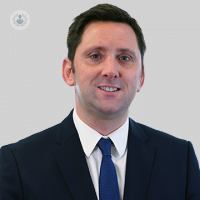Important things to know before undergoing rhinoplasty
Written in association with:Rhinoplasty is a procedure that changes the shape or size of the nose, frequently referred to as a nose job. What should you know before getting rhinoplasty? Leading consultant plastic, reconstructive and cosmetic surgeon Mr Paul Tulley, who sees patients in London and Surrey, explains the process from start to finish.

What's the first step for someone who is interested in rhinoplasty?
If you are considering rhinoplasty, the first thing you should do is research the different types of rhinoplasty techniques online. You should then arrange consultations with a number of surgeons with relevant expertise, perhaps ask for recommendations from others who have had similar experiences or your GP. During these consultations, you outline your personal requirements for the procedure, such as the desired shape and whether you have any breathing issues that may require correction.
What should I know about the procedure before undergoing rhinoplasty?
The surgeon will help you fully understand all the different aspects of the operation to achieve the results you want. This should be discussed over at least two consultations. You should also make yourself aware of the risks involved with the procedure. Your surgeon will advise you on how to minimise them. Take the time to fully understand the recovery process including pack, suture, and plaster or splint removal. Following surgery, usually you are required to rest for two weeks. Longer term, final results usually take at least nine to twelve months as a minimum to be fully apparent, depending on the complexity of the surgery.
What happens in consultations with the surgeon prior to surgery?
The surgeon will take a detailed history which includes defining the patient's concerns regarding their nose shape and aims for correction. This will include any history of trauma, any previous rhinoplasty surgery, or breathing issues. The surgeon will take into account the patient’s drug and smoking history too.
A detailed examination of the nose is performed, including a series of measurements, and in many cases morphing software will be employed to give an indication of the likely results of rhinoplasty. As mentioned, there will be a full discussion regarding the surgical steps required to obtain the results desired and the recovery process and risks involved.
What should I avoid doing before rhinoplasty?
Before the procedure stop smoking, at least a month before surgery and for a month after. This includes all vaping and nicotine products. Avoid NSAIDs, such as aspirin, Nurofen (ibuprofen), and Voltarol for two weeks pre-op and three weeks post-op. Likewise, don’t take any herbal medication. Consume alcohol in moderation only up to a week ahead of surgery. To minimise the risk of bleeding, exercise should be avoided for three weeks after the operation.
How do I prepare for my recovery ahead of surgery?
Allow yourself a downtime period of two weeks post-op, free from work and social commitments. Taping the nose at night for at least three months is usually required so have a supply of Steri-Strips available. Understand the recovery process and know that in most cases, a full recovery can take at least nine to twelve months.
Mr Paul Tulley is an experienced and esteemed consultant plastic, reconstructive and cosmetic surgeon based in London. To book a consultation with Mr Tulley, visit his Top Doctors profile.


